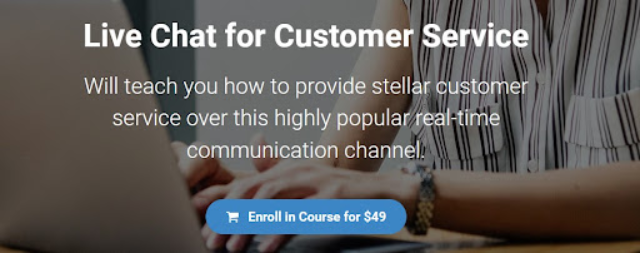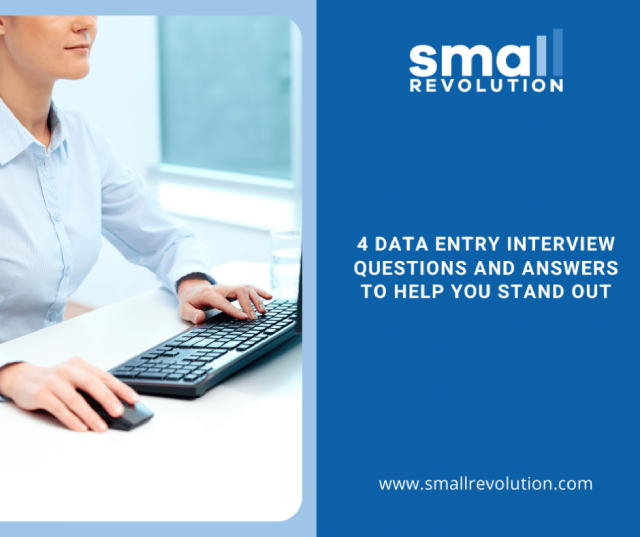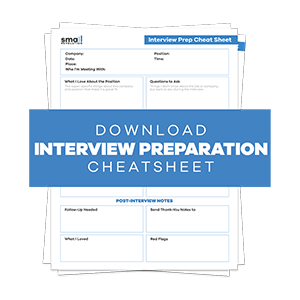You only get one chance to make an impression, and it’s daunting.
Months of applications, weeks of research on your favorite data entry companies, and it all comes down to one make-or-break job interview.
No pressure, right?
Take comfort in knowing that you’ve already made an impression with your application and, with the right preparation, you’ll have a standout performance that’ll get you hired.
To help you prepare, we’ve gathered some of the top data entry interview questions and useful tips on how to answer them. As we go over them, you’ll learn:
- Why your typing speed and accuracy matter
- Why your ability to handle long hours of repetitive work makes a difference
- How you can impress the interviewer even if you’re only looking for short-term work
- Why, as a data professional, you’re the biggest risk to a company’s privacy and data security
Question 1: What’s Your Typing Speed and Accuracy?

With this question, the interviewer is evaluating your work rate and competence.
The average data entry specialist types 40 words per minute or faster, depending on the complexity of the content. This is considered a reasonable work rate for most industries and sufficient for supporting managerial functions and decision-making.
Of more importance, however, is your accuracy.
Mistakes in data entry are costly to any organization, from wrongfully denied insurance claims to miscalculated budgets to poor business decisions.
One study found that the US economy loses more than $600 billion a year to database errors, which is why employers are keen to find meticulous employees.
Response Strategies:
- Demonstrate that you understand the importance of high-quality work and the implications for stakeholders. For instance, add a personal story to your answer, explaining what inspired your commitment to data accuracy.
- Share your game plan for ensuring zero mistakes in your work. Are there any special tools you use to improve accuracy? Do you need a supervisor to boost your confidence?
Possible Best Answers
- My typing speed is about 50 words per minute for sensitive content that requires extra concentration, and 60 words per minute for simpler entries. I also use smart automation tools to cross-check and ensure zero mistakes for the end-users.
- I type 45 words per minute and deliver 99% accuracy through careful workload balance, manual and automated cross-checking, and feedback from my supervisor.
- I type 50 words per minute and always ensure zero mistakes in my entries. That’s because I was once the victim of a database error and understand, first-hand, the ramifications of inaccurate customer information—I received a notice about an overdue bill meant for someone with a similar name.
Question 2: How Do You Handle the Repetitive Nature of Data Entry?
Data entry can be repetitive. It often involves long hours behind a computer screen, poring over spreadsheet entries that go on for months. So, how do you stay motivated and avoid burning out?
Your answer needs to assure the interviewer that you’re mentally prepared for this reality and likely to stay with the organization if hired.
Response Strategies:
- Demonstrate that you know your limits and understand the importance of taking breaks. For example, mention that you time your progress to ensure sufficient allocation of working hours between tasks and rest.
- Delve into your coping strategies for repetitive tasks. For instance, talk about your reliance on team spirit and team goals to stay motivated.
Possible Best Answers
- I plan my deliverables for the day and space them out with 30-minute recovery breaks. This allows me to balance the workload, maintain momentum, and avoid burnout.
- I approach my job as a member of a larger team. Knowing that I’m part of a collective effort and that my individual performance influences our goal motivates me to work through the routine nature of data entry.
Question 3: How Long Do You Want to Have This Job?
This is a particularly tricky question to answer because, on the one hand, data entry is an entry-level position and a stepping stone to greater roles. On the other hand, interviewers prefer long-term employees to reduce staff churn, and optimize return on investment.
That said, be honest with your response on whether you’re planning to stay long with your potential employer. This will make it easier to sell yourself and land the job, or earn a positive referral if you do decide to leave.
Response Strategies:
- If you’re looking for a short-term role, you’ll need to demonstrate high enthusiasm and motivation to stand out.
- Most employers understand the temporal nature of data entry and will consider a highly-motivated, short-term employee over an unmotivated long-term employee, because highly driven workers are more productive.
- As a long-term candidate, you are preferred by most interviewers. Let the employer know that you’re looking for a company to grow with and are willing to commit a few years to achieve this.
Possible Best Answers
- Your organization provides data processing services for a charity in my neighborhood, and I’d love the chance to contribute before my semester resumes.
- I’ll be relocating in two years to be closer to my family, but I’d love to work with your organization before then. This company has a strong work culture and a dynamic, service-minded team I’d like to learn from.
- Your company was recently featured in the list of top 10 fastest-growing data processing companies. I’ve been looking for such an organization to commit to and build a long-term career with.
Question 4: How Do You Handle the Confidential Nature of Data Entry?
Data entry specialists access a variety of sensitive information, such as medical records, credit card details, and financial records.
As such, interviewers ask this question to assess your understanding of the implications and your ability to manage such valuable information.
As an employee, you’re the biggest vulnerability to cyberattacks; whether deliberately, through carelessness, or a lack of knowledge. In fact, 52% of businesses admit that they’re at risk from within.
The following table highlights some of the vulnerabilities businesses face as a direct result of employee mistakes.
| Vulnerabilities | Percentage Of Companies |
| Inappropriate sharing of data using company devices | 47% |
| Physical loss of company mobile devices | 46% |
| Inappropriate use of IT resources | 43% |
Your response needs to assure the interviewer that your appointment won’t add to this problem.
Response Strategies:
- Demonstrate trustworthiness by talking about your history of managing confidential data and what previous employers thought about your performance. Also, mention any past training in data confidentiality from previous work or institutions.
- Mention your strategies for ensuring the safety of company data. For instance, talk about some common security mistakes you always avoid, such as using unsecured devices for work or sharing company devices with unapproved staff.

Possible Best Answers
- I take privacy and security concerns seriously and only use secured company devices when working to reduce the chances of leaks and data diddling.
- I’m experienced in handling sensitive information. In my previous company, I worked as a data entry specialist for two years without any security incidents and received a commendation from my boss.
- I’m well-trained in data security and always follow company guidelines in handling sensitive data. My previous employer had mandatory training sessions, which included a manual outlining the laws and regulations governing the handling of private information.
What Extra Skills Do You Have?

You’re now set to impress the interviewers, but why not take it a step further and add to your skill set with a customer service course from Small Revolution?
Some data entry jobs entail gathering information from consumers over the phone or live chat. As such, having additional skills, such as strong communication makes you more desirable in the eyes of interviewers.
Enroll in our course today and develop greater expertise to help you stand out.
Thanks a lot for your help. I have now been hired by FilterBuy and will be starting very soon. I am very excited and I can’t wait
Thea, Small Revolution graduate.
Share on Facebook:



